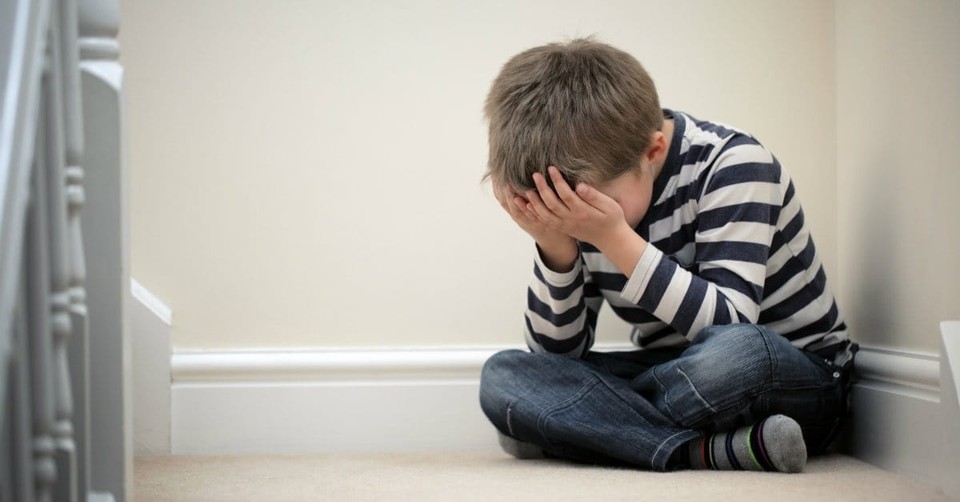What You Need to Know about Kids of Divorce

Open any newspaper or magazine to “People in the News” and you’ll likely read about a Hollywood couple, or a political figure, that is battling child custody issues. I understand the subject only too well. I was 8 years old when my parents divorced. I have no memory of the day we moved away, and the following 6-9 months is a blur. I don’t remember the drive to another city, moving in with relatives, starting school or my new teacher. I have one vague recollection of a teacher praising my schoolwork, but she has no name or face.
In contrast I can remember the smallest details of my life before the separation. I recall the gray swirled wallpaper in my bedroom, and the green and white gingham dress that my Aunt Dorothy had given to me for my birthday. I have a vivid recollection of my brother’s crib complete with teeth marks, and my treasured chalkboard where I would “teach” my dolls. The Tide box was stored on the bathroom windowsill, and our brown sofa was plaid. And a small, white radio sat on top of the refrigerator entertained me as I washed dishes.
Twenty-three years later I found myself in a pastor’s office weeping. I had just quit a high-stress job with a boss who was impossible to please. Instead of experiencing relief, I was overwhelmed with despair. When the pastor questioned the reason for my anxiety I replied, “I don’t know. All I know is that I’m eight years old again, and I can’t do one thing right.” I was as perplexed as he was to hear those words come out of my mouth. Why did I say that?
As the conversation unfolded it became painfully clear that this little girl, with a memory loss, believed she was the reason for her parents divorce. The torture of that conviction was too burdensome for my tiny mind to endure. So I forgot. Thirty-one years later, sitting in that office, the truth unfolded. The shame and trauma of my parent’s divorce had haunted my life, and influenced my decisions. And I never even knew it.
After more than 25 years in divorce recovery ministry, that childhood experience, plus the pain of my own divorce, now serves a higher calling. I’m featured as an expert on the DivorceCare DVDs which has equipped more than 14,000 churches worldwide. Plus I lead workshops and seminars that help people heal during and after a divorce.
Kids and divorce is a complex subject and there are no easy answers. However, it’s imperative for parents to learn that they play a pivotal role in minimizing the trauma kids experience when their parents separate or divorce. Here are a few tips that might help:
- Most kids will initially go into a form of denial when their parents separate. They believe, “this is temporary, my parents will get back together.” Even years later many kids still dream about their parents reuniting, which is one reason why they resist a parent’s remarriage.
- Allow the child time to grieve. Children are unable to communicate grief in the same manner as adults. Therefore, they may be sad, angry, frustrated or depressed but can not express it.
- Do not uproot and/or make numerous unnecessary changes. This includes moving into a new home, starting a new school, changing churches, or new friends, etc.
- It emotionally harms children when parents use them as spies, mediators, or informants. They feel trapped in the middle of a no-win situation.
- Allow your child to love the other parent and extended family. They didn’t get divorced from their mother or father—you did.
- Do not lie. In an age appropriate manner, and without gory details, tell the truth. The number one reason kids blame themselves for their parent’s divorce is because they were not told the truth.
- When a parent belittles, bashes, or criticizes the other parent it can emotionally destroy a child’s self worth. “If dad is a no-good loser, I must be one too.” “If mom is a tramp, that’s what I’ll become.”
- The children who do the best after a divorce are those who have a strong relationship with both biological parents. Therefore, do not withhold visitation unless the child is being neglected or in danger.
- Refrain from entering a new relationship. Kids do not view your new love interest as a welcome addition to the family. Instead he/she is feared as the person taking their parent away. This is why stress over stepchildren is a key reason second marriages fail.
- Find a divorce recovery program for kids www.dc4k.org, or The Landing for teens. http://store.pastors.com/collections/the-landing
Divorce is a death. With time to grieve, the proper help, and Jesus Christ, children from divorced homes can eventually become whole again. What they need is a godly, stable single parent who is willing to slow down, listen to instruction, and take the steps necessary to heal.
Copyright © 2016 Laura Petherbridge. All rights reserved.
Laura Petherbridge is an international author and speaker who serves couples and single adults with topics on stepfamilies, relationships, divorce prevention, and divorce recovery. She is the author of When “I Do” Becomes “I Don’t”—Practical Steps for Healing During Separation and Divorce, The Smart Stepmom, 101 Tips for the Smart Stepmom, and Quiet Moments for the Stepmom Soul. Her website is www.TheSmartStepmom.com
Publication date: July 29, 2016
Originally published April 13, 2018.





